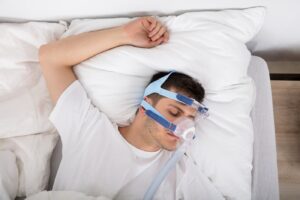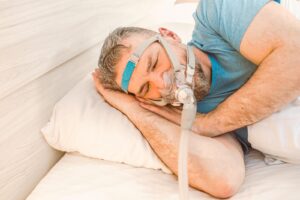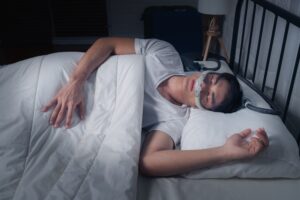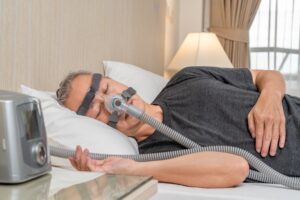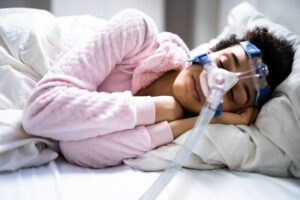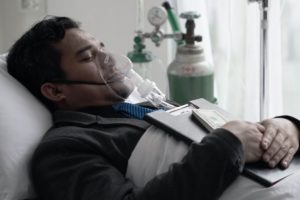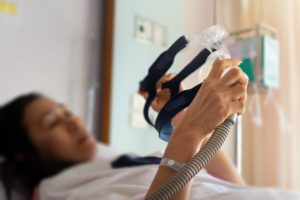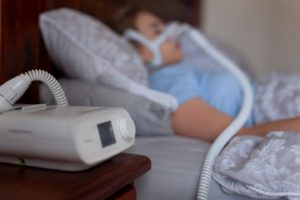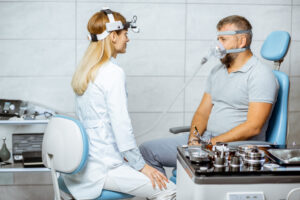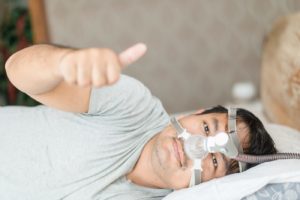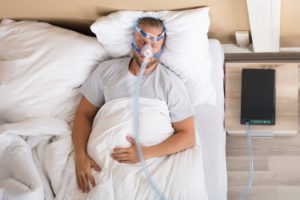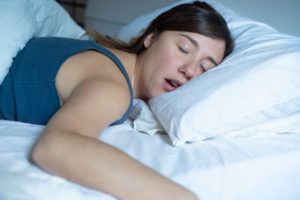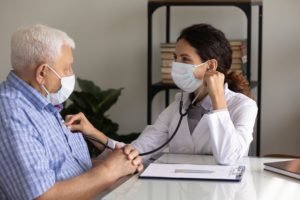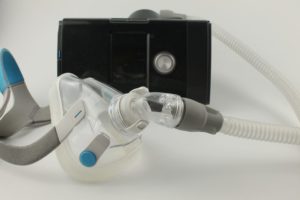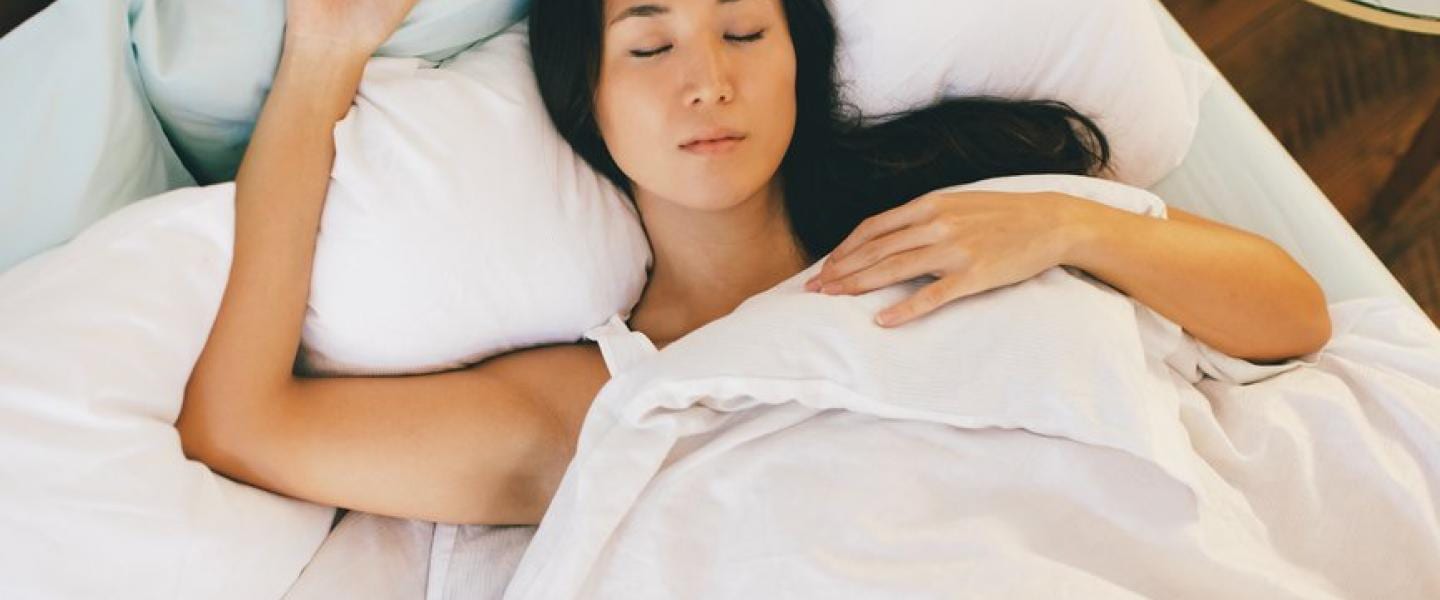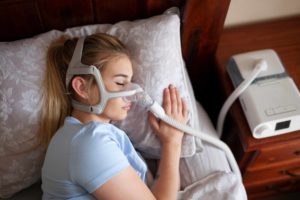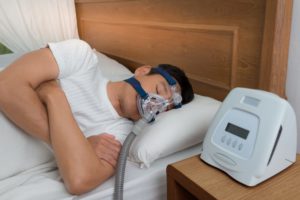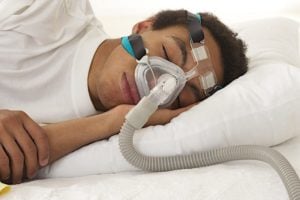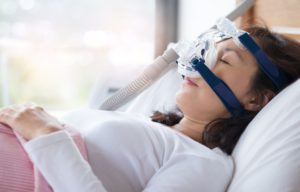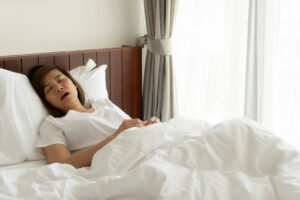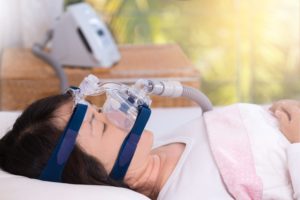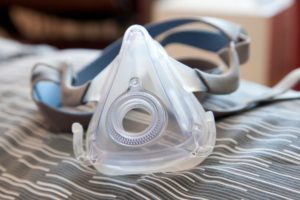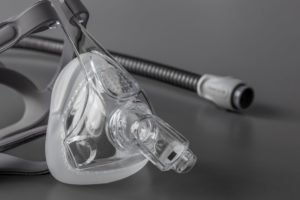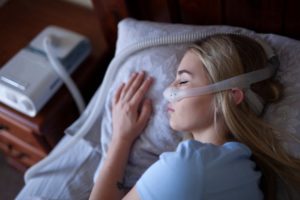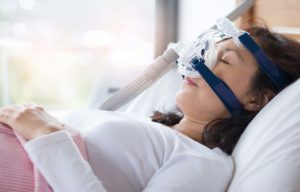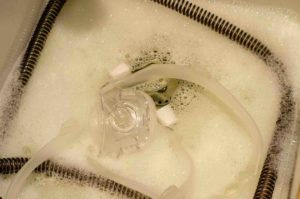When you buy through our links, we may earn a commission. Products or services may be offered by an affiliated entity. Learn more.
CPAP Recalls: What You Need To Know
In June of 2021, the medical device company Philips issued a voluntary recall of many of its Respironics products, including continuous positive airway (CPAP) machines, bilevel positive airway pressure (BiPAP) machines, and ventilators. The sound-dampening foam in these machines had a tendency to break down, releasing particles and toxic chemicals that users could inhale or swallow during use.
The recall affected millions of Americans, including many who used CPAP machines to treat their sleep apnea between the years of 2009 and 2021 . Although Philips has changed the foam it uses in Respironics products, its devices continue to face scrutiny and raise health concerns.
Philips CPAP Recall: Latest Updates
An investigation released in September 2023 revealed that Philips had evidence that its devices were harming users more than a decade before the company issued the recall. This led to calls for accountability by lawmakers and, ultimately, the intervention of the Department of Justice.
In January 2024, Philips reached an agreement with the DOJ that required the company to immediately stop selling sleep and respiratory care devices, including all models of CPAP machines, in the United States. As of April 2024, an agreement laid out a series of steps that the company must take before being allowed to begin selling the devices again, including new safety inspection processes.
It’s important to note that no additional devices have been recalled since June of 2021. That said, information regarding the recall and responses to it continue to unfold and evolve.
Important Developments
Medical Device Reports to the FDA
Since the 2021 recall, the U.S. Food and Drug Administration (FDA) has received more than 100,000 reports of malfunctions, injuries, and deaths associated with recalled Philips Respironics devices. These reports—which come from patients, physicians, caregivers, and device manufacturers—document an array of respiratory symptoms, cancer, and 385 deaths believed to be linked to device use.
Concerns About Replacement Models
During the recall, Philips pledged to replace many devices, including CPAP machines, with newer models that use a different foam. However, the FDA has issued a warning that the new silicone foam used in the replacement CPAP and BiPAP machines may release “certain chemicals of concern,” including the carcinogen formaldehyde.
The FDA has also issued a warning to users of Philips DreamStation 2 CPAP machines, one of replacement models issued in the wake of the recall. Within a span of three months in 2023, the FDA received hundreds of reports of overheating, smoke, fire, and burns during device use. According to the FDA, electrical or mechanical malfunctions may be to blame.
These discoveries are still under investigation and, as of yet, have not resulted in additional recalls.
Class-Action Lawsuit
In September 2023, Philips agreed to pay $479 million in economic damages to users of recalled devices. This settlement only compensated for the costs incurred by individuals who used the recalled devices. Regarding claims of injury and wrongful death, Philips is facing a class-action lawsuit with thousands of plaintiffs. The 755 pending cases consolidated in that lawsuit may begin going to trial in 2024.
Consent Decree with the Justice Department
On April 9, 2024, Philips Respironics and federal officials announced they had reached an official settlement, three years after the initial recall announcement. Philips is banned from producing devices at its Pittsburgh factories until they can meet certain safety requirements. In the consent decree released by the Justice Department, Philips must hire an independent safety monitor, participate in regular facility inspections for five years, and pay 25% of its revenue to the federal government.
Users of recalled devices with health concerns are advised to speak to their doctor immediately, however it will take years to assess the impact of the devices on patient health. The company will also face an independent review of the millions of replacement machines that were sent to customers during the recall.
Suspect You May Have Sleep Apnea?
Answer three questions to understand if you should be concerned.
List of All Currently Recalled Devices
The following Philips Respironics CPAP machines, BiPAP machines, and ventilators with manufacture dates prior to April 26, 2021 have been recalled and are not available for sale:
- A-Series BiPAP A30
- A-Series BiPAP A40
- A-Series BiPAP Hybrid A30
- A-Series BiPAP V30 Auto
- C-Series ASV
- C-Series S/T and AVAPS
- DreamStation 1
- DreamStation ASV
- DreamStation Go
- DreamStation ST, AVAPS
- Dorma 400
- Dorma 500
- E30
- Garbin Plus, Aeris, LifeVent
- OmniLab Advanced+
- REMstar SE Auto
- SystemOne ASV4
- SystemOne
- Trilogy 100
- Trilogy 200
The recall also covers certain Trilogy Evo ventilators sold between April 15, 2021 and May 24, 2021.
Additional Devices Philips Stopped Selling in 2024
In accordance with the terms of the consent decree it entered with the DOJ, Philips stopped selling all CPAP and BiPAP machines as well as the following sleep and respiratory care devices as of January 25, 2024:
- Alice 6
- Alice NightOne
- DreamStation 2
- EverFlo
- Millennium M10
- SimplyGo
- SimplyGo Mini
- Trilogy EVO and EV300
It is important to note that these devices have not been recalled, and Philips is still allowed to service them and to sell accessories and replacement parts.
Why Machines Are Being Recalled
The recalled Philips Respironics devices contained polyester-based polyurethane (PE-PUR) foam, which was used to reduce noise and vibrations generated by the machines. Over time, this foam had a tendency to break down, especially when exposed to heat and humidity or sterilized with ozone cleaner.
As the foam degraded, it broke into small particles that users could inhale or swallow. The foam also released chemicals that could travel through the devices’ air tubes and into users’ lungs. Users reported finding black dust or sticky residues in the chambers, tubes, and filters of their machines.
Possible Health Risks From Recalled Devices
The particles and chemical vapors released by disintegrating PE-PUR foam can harm device users. Some of the documented health effects include:
- Asthma
- Sinus congestion
- Coughing
- Sore throat
- Skin, nose, and eye irritation
- Dizziness
- Chronic headaches
- Nausea and vomiting
- Cancer of the sinuses, throat, esophagus, kidney, and liver
If You Own a Recalled Machine
If you use a recalled CPAP or BiPAP machine, it’s important to contact your doctor immediately to discuss what you should do. Depending on your needs and circumstances, your doctor may recommend that you immediately stop using your device or that you continue using it until you acquire a suitable replacement.
Your doctor might also suggest alternative therapies and lifestyle changes to manage your sleep apnea, such as using an oral appliance to keep your airway open, avoiding alcohol and cigarettes, or sleeping on your side.
According to the FDA, you should not:
- Use ozone or ultraviolet (UV) light cleaners to disinfect your machine
- Attempt to remove the foam from your machine
- Try to alter your advice, for example, by using multiple filters at once
These actions may increase your risk of harm or decrease the effectiveness of your therapy. Additionally, if you have health complaints that you suspect may be related to device use, or if you have noticed any other problems with your device, you can report them through the FDA’s MedWatch Voluntary Reporting Form.
If You’re a Health Care Provider
If you’re a health care provider with patients who use recalled devices, there are several steps that the American Academy of Sleep Medicine recommends that you take.
- Contact patients to whom you’ve prescribed or issued recalled devices. The AASM provides a sample script for informing patients about the recall and potential risks to their health.
- Discuss next steps with patients who use recalled devices. If possible, prescribe or issue a replacement device not affected by the recall. If circumstances prevent that from happening immediately, weigh the benefits and risks of temporarily continuing treatment with a recalled device.
- Encourage patients to register their devices with Philips. If patients plan to request replacement devices from Philips, discuss the potential risks they might face with newer Respironics models.
- Provide cleaning instructions. Emphasize the importance of following the device-maker’s cleaning instructions to patients who plan to continue treatment with recalled equipment.
Information about Replacements
If you would like Philips to send you a replacement device, you will need to register your device online or update your existing registration via Philips’ online patient portal. You may be required to send back your current device, but you should not do so until you have a suitable replacement. Alternatively, you can ask your doctor to write you a prescription for a machine made by a different manufacturer.
Frequently Asked Questions About CPAP Recalls
At this time, the FDA says that it doesn’t have enough evidence to determine whether or not the new silicone-based foam used in replacement devices poses health risks to patients. And while the FDA has cautioned Dreamstation 2 users to look out for issues like overheating and the smell of burning, the thermal problems reported for that model have not resulted in a recall at this time.
If you do not feel comfortable using a replacement device provided by Philips, talk to your doctor about your options.
Some of the side-effects of using a CPAP or BiPAP machine with degraded foam may go away after you stop using the device. However, the FDA stated that the recalled devices are capable of causing permanent injury and serious illnesses.
Whether or not you experience long-term side effects depends on a range of factors, including the state of the foam in your machine, how long you used your device, and your overall health status. If you are concerned about the health consequences of using a recalled machine, talk to your doctor.
If you used a recalled device, Philips’ 2023 economic settlement entitles you to up to
three types of compensation:
Device Payment Award: If you rented, leased, or purchased a recalled device, you can be reimbursed for some of the money you paid. Award amounts are based on the pricing of the devices and range from about $67 to more than $1,500.
Device Return Award: If you return your recalled device to Philips by Aug. 9, 2024, you can receive $100.
Device Replacement Award: If the recall led you to purchase a replacement device between June 14, 2021 and Sept. 7, 2023, you may be eligible for reimbursement.
To find out what benefits you may be eligible for and what steps to take next, visit the Interactive Eligibility and Benefits Determination.

Still have questions? Ask our community!
Join our Sleep Care Community — a trusted hub of product specialists, sleep health professionals, and people just like you. Whether you’re searching for the perfect mattress or need expert sleep advice, we’ve got you covered. Get personalized guidance from the experts who know sleep best.
References
17 Sources
-
U.S. Food and Drug Administration. (2024, January 31). Recalled Phillips Ventilators, BiPAP Machines, and CPAP Machines.
https://www.fda.gov/medical-devices/respiratory-devices/recalled-philips-ventilators-bipap-machines-and-cpap-machines -
Fleming, M., Sager, M., Tan, N., Sarkar, S., Robinson-Johnson, E., Gardner, C. (2023, November 1). People Who Used Recalled Philips Breathing Machines Face Painful Choices. ProPublica.
https://www.propublica.org/article/nine-stories-of-people-impacted-by-philips-breathing-machine-recall -
Cenziper, D., & Sallah, M. D. (2024, January 29). Amid Recall Crisis, Philips Agrees to Stop Selling Sleep Apnea Machines in the United States. ProPublica.
https://www.propublica.org/article/philips-agrees-to-stop-selling-sleep-apnea-machines-in-us -
Cenziper, D., Sallah, M. D., Korsh, M., Robinson-Johnson, E., & Sager, M. (2023, September 27). Philips Kept Complaints About Dangerous Breathing Machines Secret While Company Profits Soared. ProPublica; Pittsburgh Post-Gazette; Northwestern University.
https://www.propublica.org/article/philips-kept-warnings-about-dangerous-cpaps-secret-profits-soared -
Salant, J. (2023, October 11). U.S. Senator Expands Call for Crackdown on Philips Respironics. ProPublica; Pittsburgh Post-Gazette.
https://www.propublica.org/article/blumenthal-fda-attorney-general-philips-respironics -
Philips. (2024, January 29). Philips delivers strong full-year results; agrees with FDA on terms of consent decree focused on Philips Respironics in the US. Philips’ Fourth-Quarter and Annual Results 2023.
https://www.philips.com/a-w/about/news/archive/corpcomms/news/press/2024/philips-fourth-quarter-results-2023.html -
U.S. Food and Drug Administration. (2023, July 7). Medical Device Reporting (MDR): How to Report Medical Device Problems.
https://www.fda.gov/medical-devices/medical-device-safety/medical-device-reporting-mdr-how-report-medical-device-problems -
U.S. Food and Drug Administration. (2024, January 31). Update: Certain Philips Respironics Ventilators, BiPAP Machines, and CPAP Machines Recalled Due to Potential Health Risls: FDA Safety Communication.
https://www.fda.gov/medical-devices/safety-communications/update-certain-philips-respironics-ventilators-bipap-machines-and-cpap-machines-recalled-due -
Cenziper, D., Sallah, M., & Robinson-Johnson, E. (2023, December 28). Philips Recalled Breathing Machines in 2021. Chemicals of “Concern” Found in Replacement Machines Raised New Alarm. ProPublica; Pittsburgh Post-Gazette.
https://www.propublica.org/article/philips-recall-machines-chemicals-of-concern -
U.S. Food and Drug Administration. (2023, November 28). Carefully Monitor Philips DreamStation 2 CPAP Machines for Signs of OVerheating: FDA Safety Communication.
https://www.fda.gov/medical-devices/safety-communications/carefully-monitor-philips-dreamstation-2-cpap-machines-signs-overheating-fda-safety-communication -
Llamas, M. (2024, February 1). Philips CPAP Lawsuits. In A. Edel (Ed.). ConsumerNotice.org
https://www.consumernotice.org/legal/philips-cpap-lawsuits/ -
Brooks, K. (2023, September 8). Philips Respironics agrees to $479 million CPAP settlement. CBS News.
https://www.cbsnews.com/news/philips-settlement-cpap-recall-lawsuit-fda/ -
Miller, R. (2024, February 8). Philips CPAP Lawsuit Settlement Amount Projections. Lawsuit Information Center.
https://www.lawsuit-information-center.com/cpap-sleep-apnea-mdl.html -
United States of America v. Philips RS North America LLC et al. US District Court for the Western District of Pennsylvania. (2024, April 4).
https://s3.documentcloud.org/documents/24534169/philips-doj-consent-decree.pdf -
Philips Respironics. (2024, February 6). Sleep & Respiratory Product Portfolio Changes.
https://www.usa.philips.com/healthcare/e/sleep-and-respiratory-care/src-portfolio-update -
American Academy of Sleep Medicine (2024, January 31). AASM guidance in response to Philips recall of PAP devices.
https://aasm.org/clinical-resources/guidance-philips-recall-pap-devices -
Respironics CPAP Settlement. Philips Respironics Recalled CPAP, Bi-Level PAP, and Mechanical Ventilator Products Litigation.
https://www.respironicscpap-elsettlement.com/


